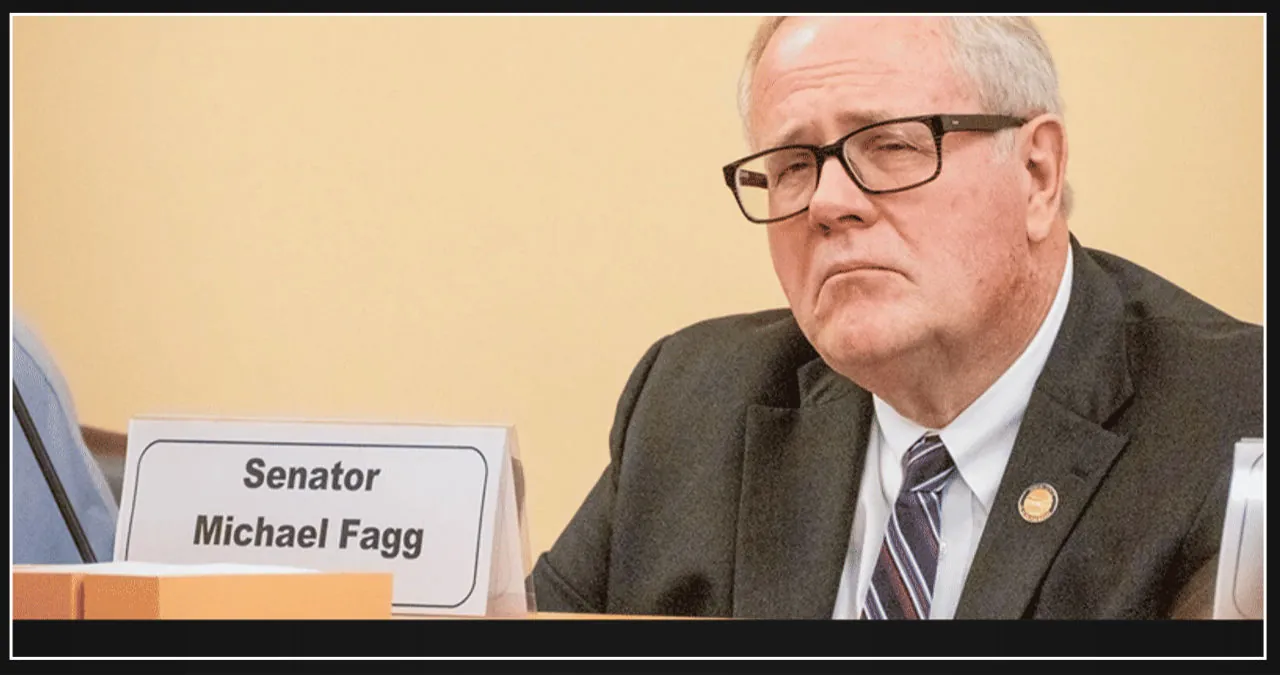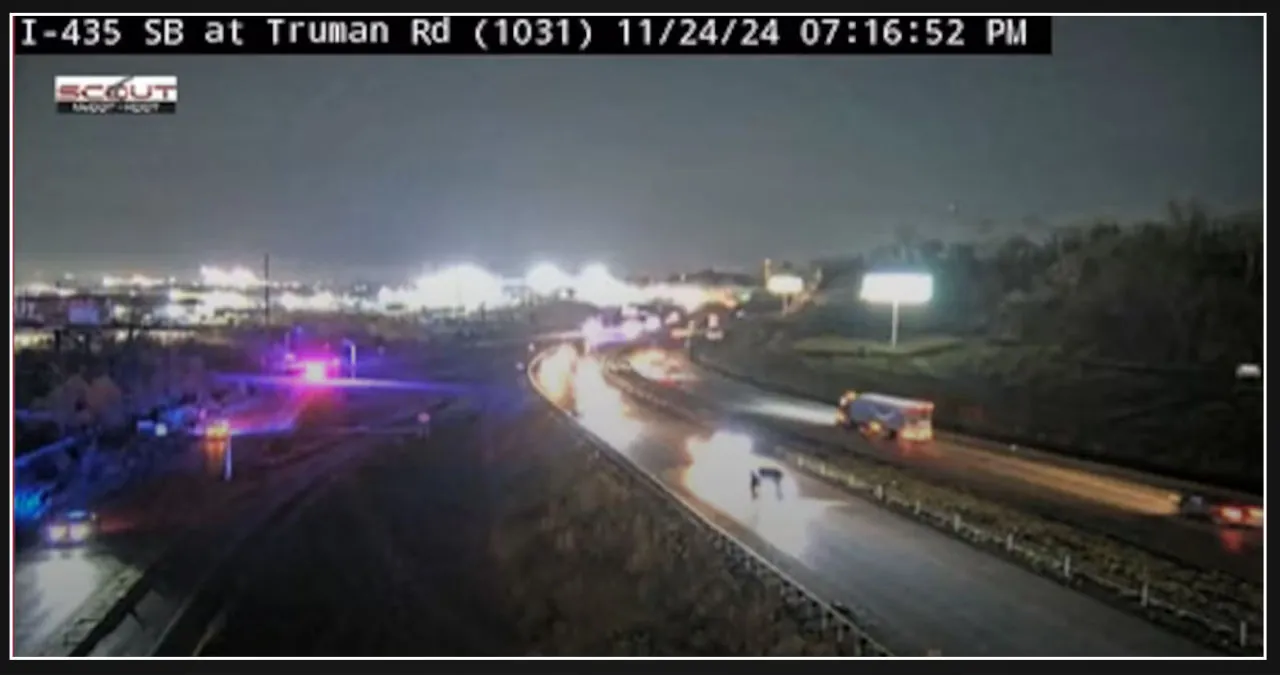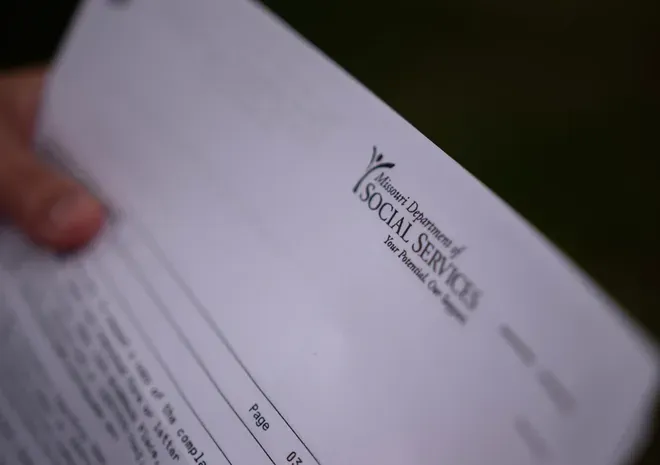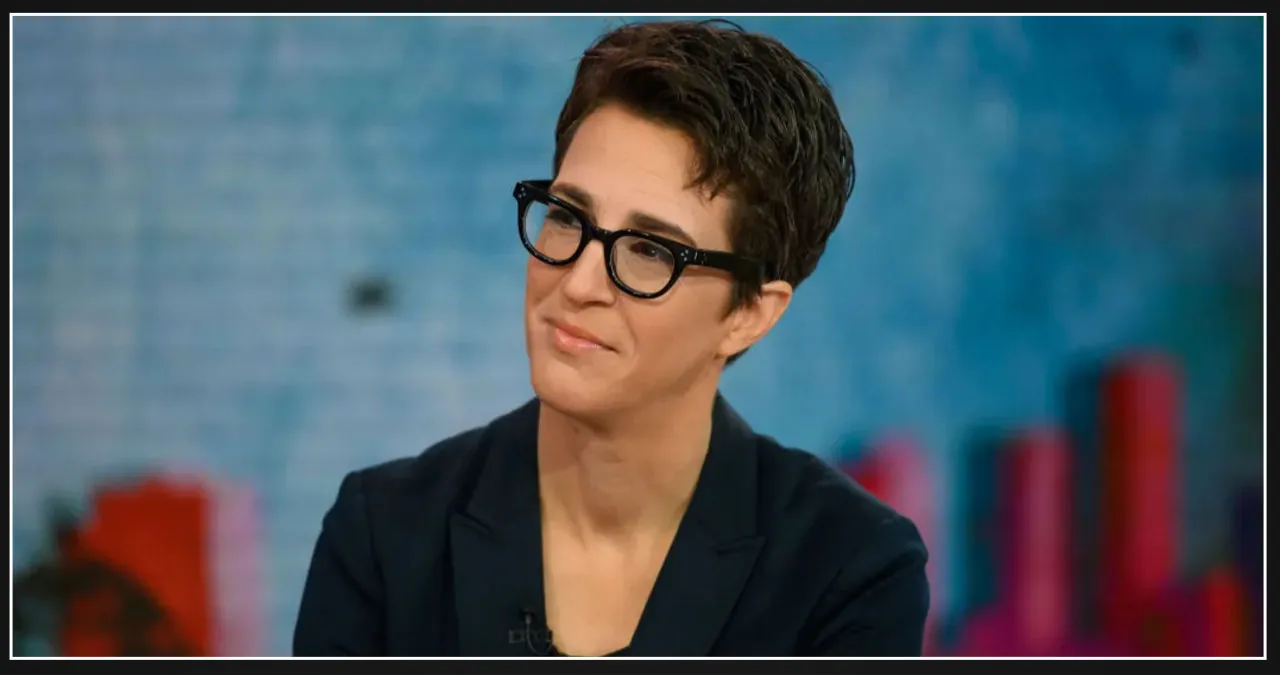Tim Carpenter, a journalist for the Kansas Reflector, presents an insightful article discussing the impacts of climate change on the Great Plains region. Carpenter highlights the challenges faced by farmers and ranchers in the area, as they grapple with extreme weather events and changing growing seasons.
Carpenter emphasizes the importance of acknowledging climate change as a real and urgent threat, rather than dismissing it as a distant concern. He shares stories from farmers who have experienced firsthand the devastating effects of prolonged droughts, unpredictable storms, and shifting precipitation patterns.
One farmer, Tom Giessel, describes the struggles he faces on his Kansas farm. Giessel notes the increased frequency and intensity of storms, which have led to significant damage to his crops and infrastructure. He also expresses concern about the long-term viability of his farm, as changing weather patterns make it harder to plan and adapt.
Carpenter goes on to discuss the economic consequences of climate change in the Great Plains. He highlights the potential for decreased agricultural productivity, which could have far-reaching impacts on food prices and availability. Additionally, he explores the effects of extreme weather events on rural communities, where agriculture is a vital part of the local economy.
Despite these challenges, Carpenter offers a glimmer of hope. He shares stories of farmers who are implementing innovative practices to mitigate the effects of climate change. From soil conservation to crop diversification, these individuals are finding ways to adapt and thrive in the face of adversity.
In conclusion, Carpenter’s article sheds light on the real and immediate impacts of climate change on the Great Plains region. Through personal anecdotes and expert analysis, he underscores the need for urgent action to address this global crisis. By supporting farmers and ranchers in their efforts to adapt and innovate, we can help secure a sustainable future for the Great Plains and beyond.
Republican Senator Michael Fagg is aiming to convince the 2025 Kansas Legislature to allocate $1 billion from the state’s revenue surplus towards reducing the $9.7 billion long-term unfunded liability in the state’s pension system.
The Kansas Public Employees Retirement System, which caters to over 300,000 Kansans and holds assets worth $27 billion, was granted legislative approval several years ago to issue bonds. This allowed the system to invest the proceeds in the market, thereby strengthening its overall financial position.
KPERS utilized $500 million bond issues in both 2004 and 2021, along with a $1 billion offering in 2015.
On Wednesday, Fagg failed to persuade the Legislature’s joint committee on pensions to support his proposal of allocating an additional $1 billion to tackle the system’s 30-year liability. The losses incurred in 2022, with a negative 9.7% return on investment compared to a positive 15.7% in 2021, have further complicated KPERS’ ability to meet its pension obligations in the future.
“I’m deeply concerned about unfunded liabilities,” Fagg emphasized. “It’s not often that we have such a significant amount of money at our disposal. I want to assure you that I understand exactly where it should be allocated.”
Sen. Pat Pettey, a Democrat from Kansas City, Kansas, expressed her focus on utilizing existing state revenue to improve the benefits provided by the KPERS 3 retirement plan for public employees.
“I cannot support this recommendation because we need to consider the bigger picture,” she expressed. “We must not underestimate the impending wave of seniors that lies ahead of us.”
Members of the joint pension committee in the House and Senate have voted to urge the 2025 Legislature to explore the possibility of providing additional funds to reduce the unfunded liability. They have also agreed to request the Legislature to consider making changes to KPERS 3.
The committee has agreed to propose to the Legislature that they reconsider providing a cost-of-living adjustment for retirees from the Kansas Public Employees Retirement System (KPERS). The panel suggests that the Legislature should also explore the possibility of expanding the deferred retirement program to other KPERS members, such as fire and law enforcement personnel, to encourage them to continue working instead of retiring. This could be beneficial in addressing the increasing number of teacher retirements in Kansas.
According to Senator Jeff Longbine, an Emporia Republican who did not seek reelection in 2024, it is important to consider that any increase in benefits that is not paid for upfront can negatively impact the fund.
Tier 3, well, ‘sucks’
Public employees and legislators are increasingly worried about the KPERS 3 retirement plan that was implemented by Republican Governor Sam Brownback almost ten years ago. The Brownback administration decided to adopt KPERS 3 in order to reduce the financial burden on Kansas taxpayers, which resulted in significantly reduced financial benefits compared to KPERS 1 and KPERS 2.
According to a recent report by the Legislature’s auditing unit, KPERS 3 has been found to have higher worker contribution requirements, a longer vesting period, and lower financial rewards compared to similar public retirement plans in other states. The auditors also highlighted that a survey of current and former Kansas public employees revealed that individuals enrolled in KPERS 3 were more likely to leave their job compared to participants in KPERS 1 or KPERS 2.
In 2023, Rep. Sean Tarwater, a Republican from Stilwell, expressed his opinion straightforwardly, stating, “There is no need for an audit to confirm that Tier 3 is not performing well.”
Public employees in KPERS 3 enjoyed a guaranteed 4% annual earnings on their personal account balances. However, the additional benefits for these city, county, or state employees were contingent upon the performance of the pension system’s investment portfolio. It is important to note that KPERS 1 and KPERS 2 did not shift the investment-return risk directly onto the public employees in Kansas.
There have been suggestions to transfer all KPERS 3 members to KPERS 2 due to dissatisfaction. This proposal would shift the financial risk of retirement investments to the state.
$75 million IT overhaul
The executive director of KPERS revealed that the pension system is currently undergoing a five-year transition to a new information technology system. This transition is expected to cost approximately $75 million.
According to Alan Conroy, executive director at KPERS, the project at hand is an enormous task. He emphasizes the importance of preparing beforehand by cleaning data and backfilling staff to ensure that employees are not overwhelmed with the project while still managing their regular responsibilities.
Rep. Cindy Neighbor, a Shawnee Democrat on the joint committee, expressed her hope that KPERS will be able to acquire a modern IT platform that avoids the complications encountered by the Kansas Department of Labor during the overhaul of the state’s unemployment insurance system.
According to Conroy, the project has been progressing well and the necessary steps have been taken to ensure its success. He emphasizes the importance of avoiding any major setbacks, stating that the ultimate goal is to prevent any issues that could potentially impact the retirement benefits of the 116,000 retired KPERS members. The last thing they want is for these individuals to be left without their retirement benefit checks due to a failure in the IT system.
Divestment mandate
According to Bruce Fink, the chief investment officer at KPERS, the retirement system has successfully complied with a recent state law that requires divestiture from countries deemed to have significant investment risks. These countries, as designated by the Legislature, include Cuba, Iran, North Korea, Russia, Venezuela, and China (including Hong Kong). The state agencies were obligated to complete the divestiture transactions by January 1, 2026.
“We haven’t found any instances of trade violations since the act came into effect,” Fink stated. “We have strengthened our due diligence process for new and upcoming investments to ensure that the countries in which potential future managers might invest are not considered countries of concern.”
In response to the law being enacted on July 1, he announced that KPERS has decided to terminate its investments in China and Hong Kong. This decision resulted in divesting from 12 securities in 10 different companies, with a total value of $294 million.
According to Fink, KPERS has decided to hold onto 300,000 shares of Norilsk Nickel, the top metals mining company in Russia. He also mentioned that trading of the stock has been halted due to the ongoing invasion of Ukraine by Russia.
During his testimony to lawmakers, he mentioned that sanctions had been imposed. He explained that although they still possess those shares in their accounts, their current market value is zero.







